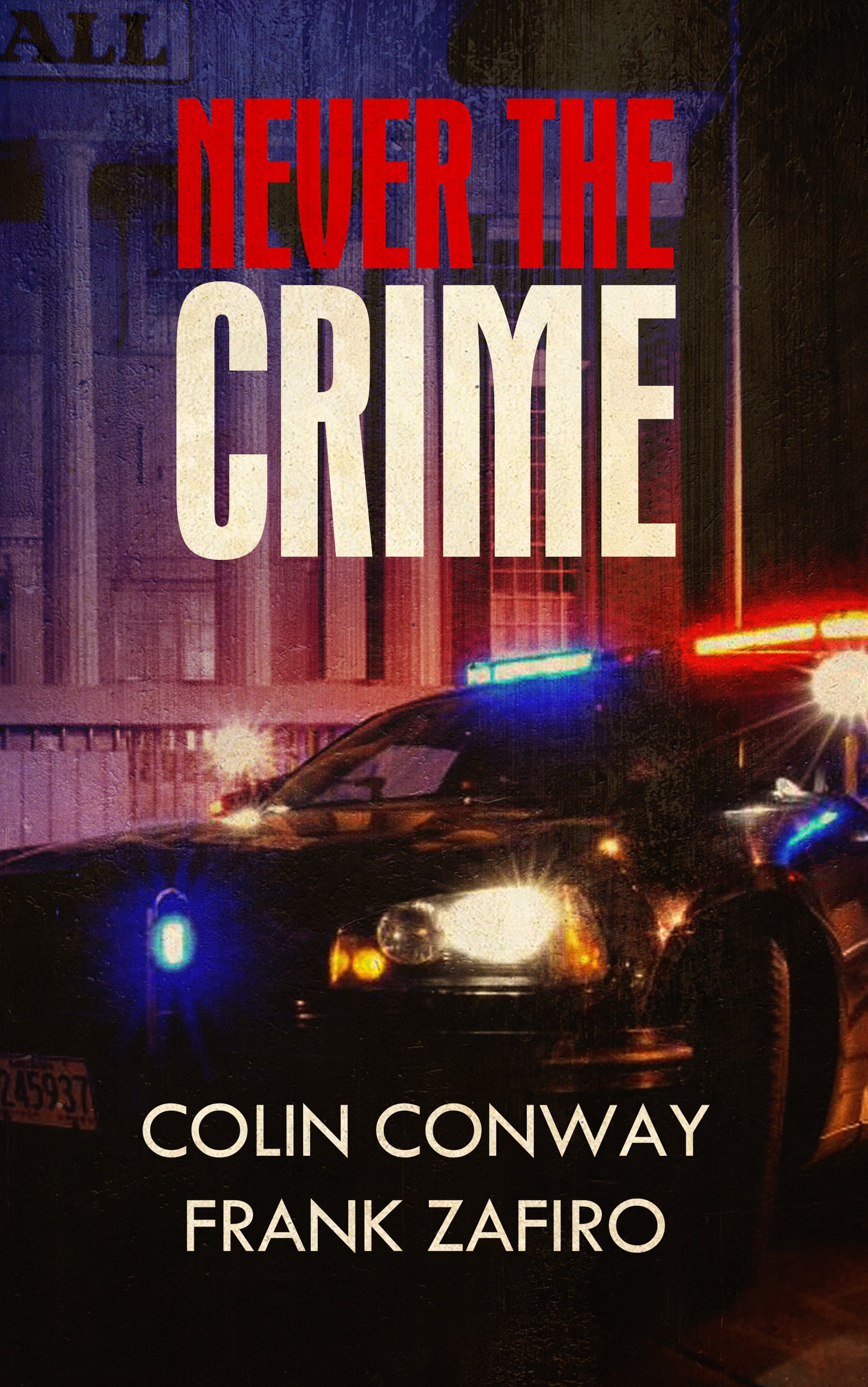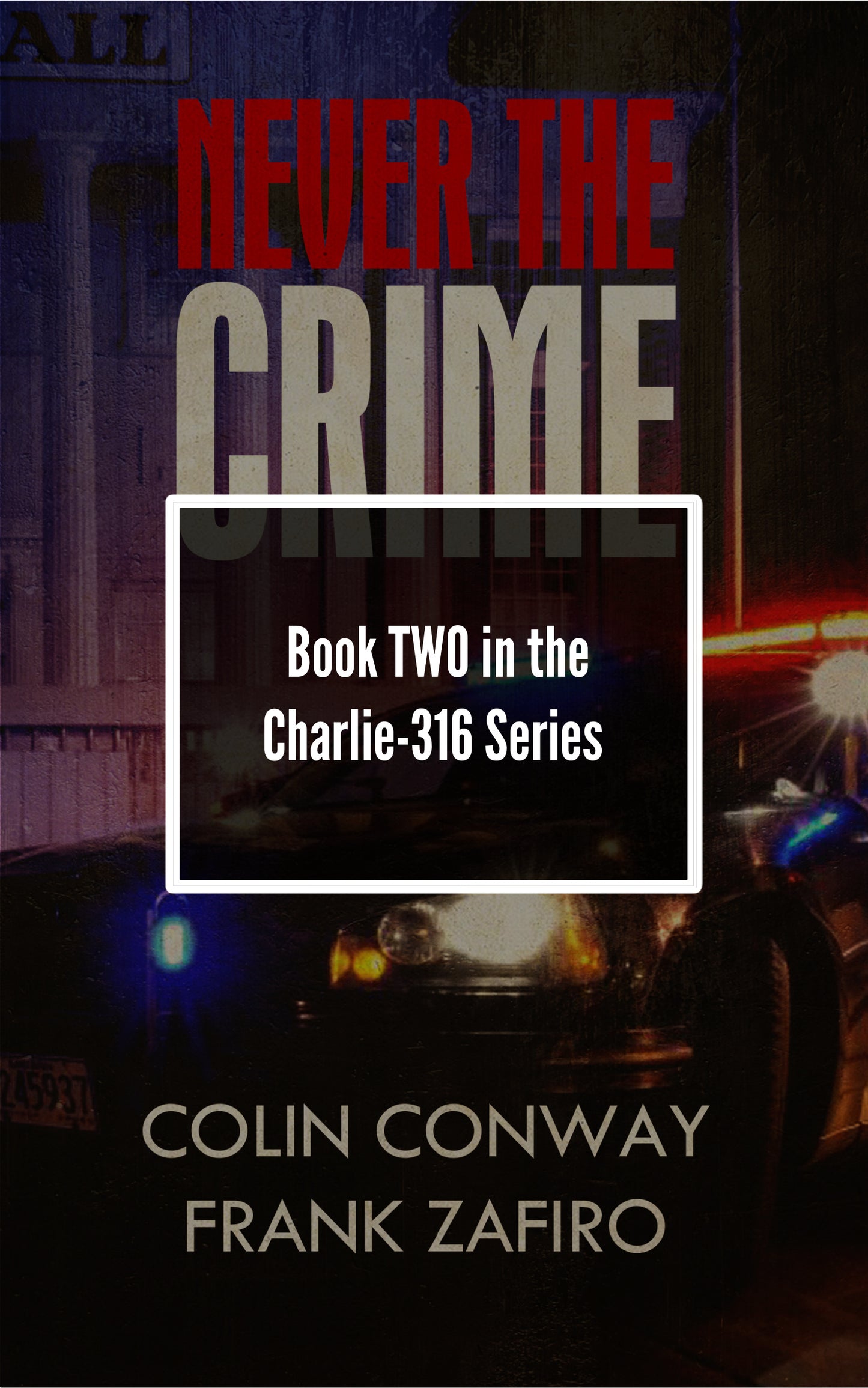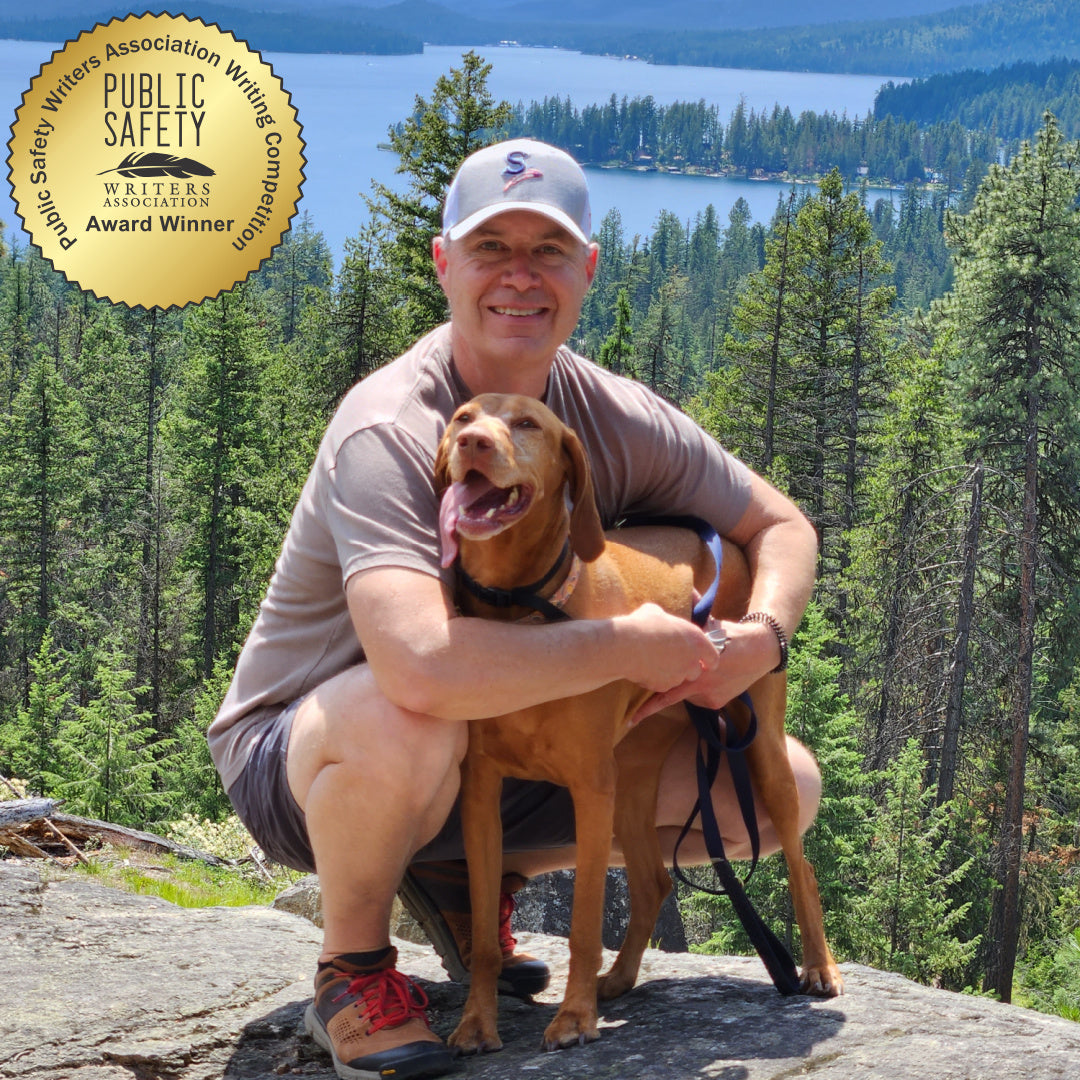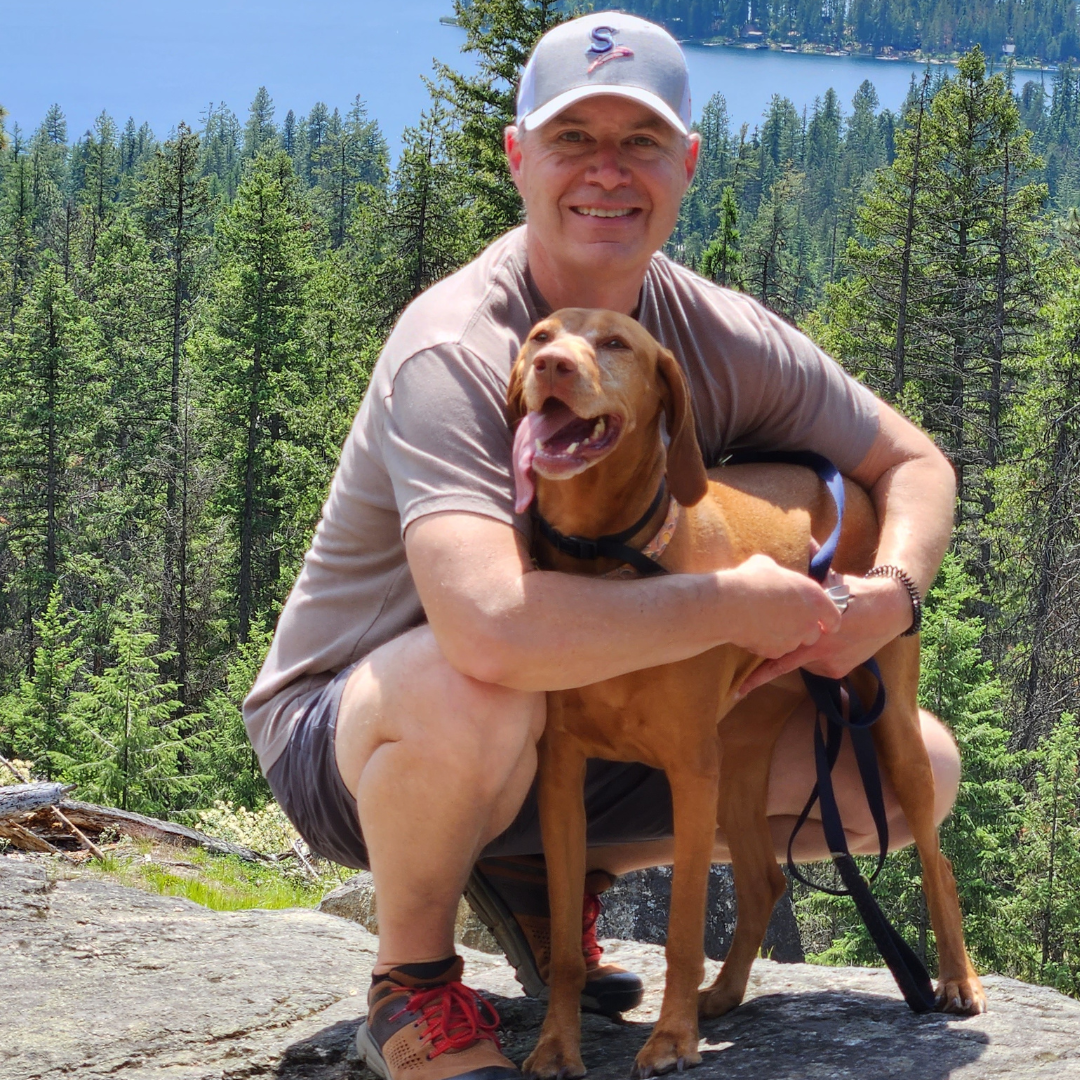Couldn't load pickup availability
Never the Crime (#2) - eBook
Never the Crime (#2) - eBook
book 2 in the Charlie-316 Series
The Tyler Garrett Saga Continues…
Spokane Police Officer Tyler Garrett is a man of many different images. To the public, he is a once maligned and now redeemed cop, the victim of public prejudice and city politics. To the Chief of Police and the Mayor, he is a good cop, falsely accused and thankfully back to work. To his wife, a man she no longer knows. And to those who know his secret, he is the most terrible thing any police officer can be—a traitor to his badge.
Clear of the controversy that surrounded him less than two years ago, Garrett is moving on and getting his life back in order. Meanwhile, Detective Wardell Clint remains on the hunt for any evidence against him that proves what Clint already knows—that Tyler Garrett is dirty. Clint has vowed to stop at nothing to bring down Garrett once and for all.
In the midst of Clint’s efforts, a rash of new city hall scandals break out, including a suspicious death, and Tyler Garrett inserts himself into the investigation. But he isn’t the only one. No one seems immune to being drawn into the web of dirty politics. Officer Gary Stone, assigned as a liaison to city hall, finds himself thrown into the midst of this maelstrom, struggling as his loyalties and ethics are challenged. The mayor, the chief, councilmembers, police captains, and news reporters all square off, each with their own agenda.
Before it ends, everyone will learn that it’s never the crime that causes downfall, but the following cover-up.






Read a Sample
Never the Crime (#2) - eBook
Chapter 1
Spokane Police Officer Gary Stone pulled into an Emergency Vehicles Only stall outside city hall. From where he parked, he could see a gathering near the front entrance of the building. He checked his Apple watch. It was barely eight a.m. That could only mean one thing—a press briefing.
He climbed out of his unmarked patrol car and stood behind the opened driver’s door. After glancing around to ensure that no one was watching, he tucked his shirt in, his hands moving expertly around his belt, being careful not to jam his fingers against the badge and gun on his left hip. He then straightened the knot on his tie and smoothed the length of its tail. He took off his sunglasses and tossed them onto the dashboard.
He leaned back into the car and grabbed his personal cell phone. For a moment, he thought about bringing his department-issued cell phone, too, but decided against it. He hated carrying both, so he forwarded his department number and emails to his personal one. Usually, the only time he carried the department phone was around the brass. The chief and captains wanted to see him with the appropriate equipment. Besides, the department-issued one was a Blackberry and who carried those anymore?
Stone then grabbed his portable radio, slammed the car door, and stepped to the side-walk. The early morning sun was up, and the air felt crisp. Spring was Stone’s favorite season as it always filled him with hope.
He approached city hall slowly, his eyes scanning the small crowd of journalists and protestors as they stood in the morning shade. A couple of security guards positioned themselves nearby, but no uniformed officers were present. That meant the briefing was unscheduled and they didn’t expect any hostility. Stone knew why the press was gathered. He’d read the morning newspaper. He would have expected at least one uniformed officer to be present and would have made that recommendation if asked.
City Councilman Justin Buckner stood behind a lectern. At thirty-nine years old, he was in his second term representing the third district. Recently divorced, he had two children, ages four and two. Normally genial, Buckner’s face was twisted with barely disguised anger.
“What I did was not wrong,” he said. His hands tightly gripped the edges of the lectern.
“Can you confirm the girl was eighteen years old?” Kelly Davis yelled. She was a re-porter for the Spokesman-Review and a regular at city hall briefings.
Buckner’s jaw tightened. “She’s nineteen.”
A murmur went through the crowd.
“I’m a man. She’s a woman.” Buckner’s finger tapped the lectern, emphasizing each point. “That’s all that matters.”
One reporter hollered above the crowd’s rumbling, “You’re twenty years older than her.”
“What does age have to do with this?” Buckner said, throwing his hands in the air. “She’s an adult. So am I, for that matter. This reeks of ageism.”
Someone yelled, “She was the babysitter!”
Stone studied the faces of the crowd. No one present appeared to be supportive of Buckner. No way for the councilman to win this argument. Even if what he’d done was legally okay, it seemed wrong.
Politically, Buckner should have known better. He’d been around long enough to understand how it would play in the public eye. Stone watched Buckner for another moment. He looked like a man juggling water and doing a bad job of it.
Shaking his head, Stone moved past the crowd, nodded at the two security guards, and walked into the building. As he stood near the elevator, an elderly woman approached. She had a knitted shawl wrapped around her shoulders and a sun hat on.
“Excuse me?” she said.
“Yes?”
“Where do I find the parks and recreation department?”
Stone smiled politely. “I’m sorry, ma’am. I don’t know. You’ll have to ask the security desk.” He pointed to a booth where a guard sat.
“Oh, I thought you worked here.”
“No, ma’am. I’m a police officer.”
“You don’t look like one,” she said with kindly smile. “You’re dressed so nicely.”
Stone’s smile remained. “Thank you. The security guard should be able to help.”
The elevator dinged and Stone stepped in. He turned to watch the woman walk away. As the doors slid shut, he shook his head. It frustrated him that people confused him with city hall security.
The doors opened on the recently renovated seventh floor, where the mayor’s office was now located. The new carpet smell still hung in the air.
As he stepped out of the elevator, Charlene Mapes, the mayor’s latest assistant, made eye contact with him. She sat behind a monstrosity of a central hub. Anyone stepping off the elevator would not get past her without a greeting of some sort, even a silent one.
“Gary,” she said flatly before turning her attention back to her computer.
Charlene was in her mid-forties and slightly heavy. Her short brown hair was tucked behind her ears.
“New haircut?” Stone asked.
Charlene’s eyes shifted back to him suspiciously. “Why?”
“I was going to say it looked nice.”
“Okay,” she said, her voice flat. Again, her attention returned to her computer.
Stone waited for her to glance his way, hoping for a smile or at least some recognition for the compliment. When she didn’t look up, Stone took it in stride. His goal was to make friends with everyone in city hall. Charlene had yet to smile at him, but he wouldn’t give up.
As he walked away from the receptionist’s desk, Stone noticed Mayor Andrew Sikes talking in hushed tones with Councilwoman Margaret Patterson. The two of them leaned close together. When the mayor noticed Stone, he flashed a grin and raised his hand in a perfunctory wave.
Stone nodded in response but continued toward his office.
“Gary!” the mayor called.
He stopped then and turned.
Sikes ambled over. “Hey, when you have some time, let’s get together. I’d like to bounce some ideas off you. Maybe catch up on how things are going in your world.”
“Sure,” Stone said. “That sounds great, Mr. Mayor.”
Sikes patted his arm. “I’ll have Charlene set it up.” He turned and hurried back to where the councilwoman was waiting. She studied Stone with intense interest.
He nodded once toward her then headed to the mailstop, where both internal and external correspondence was delivered each day. There were several items waiting for him, including an interoffice envelope.
His small office at the far end of the floor had a mahogany desk, a laptop, and a filing cabinet. No pictures hung on the walls.
I should decorate this soon.
He’d been in this assignment for almost a year and the seventh-floor remodel had only been finished for about sixty days. Everyone else on the floor had made their offices presentable, like little homes away from home, so Stone was now looking like the odd man out. Soon.
Prior to the move, he’d worked out of a cubicle near Charlene’s old desk. There was never an opportunity to decorate that. Stone half expected someone to take this office away from him and move him back into a cubicle on a lower floor.
His first order of business was his mail. There were two letters addressed to him. One was from a local volunteer organization that supported the police department. They were asking him to participate on their board. He set it to the side. It was something to consider. He might even run it by the chief to get his thoughts on it.
The second letter was the police union announcing that their annual meeting was set for next month. Union President Dale Thomas smiled in a photo in the upper left corner. Even in the black-and-white picture, his sport coat looked ill-fitting and tie knot too large. Why the union bothered to still use printed mail escaped him. He crumpled the announcement and threw it away.
He picked up the interoffice envelope then, unwound the string fastener, and opened it. He removed a letter with a Post-it attached to it.
Handwritten on the little yellow note was I think this is for you—Jean.
Stone removed a letter addressed to Councilman Dennis Hahn. The handwriting was shaky, and the thought process was incoherent. The author, Lyle Bunney, accused the councilman of being a pawn of the Russian government, conspiring with the FDA to withhold a cure for cancer, and poisoning the aquifer with fluoride. The letter rambled for three pages of tightly spaced printing.
Part of Stone’s city hall assignment was to provide threat assessments when necessary. That was a fancy way of saying he needed to respond whenever wingnuts wrote threatening letters and emails to city hall employees. Most often, he would review a letter and quickly determine that further action wasn’t necessary.
In this case, however, Lyle Bunney earned himself extra attention with the final line of his letter. He wrote:
Stop your terrorist ways councilman
or Ill stop them for you. Permantally.
To Stone, even with the spelling errors, the letter looked like a threat to kill. It would require a response.
He grabbed the letter, headed to the stairs, and walked down to the sixth floor where the city council offices were located. Due to the recent remodel, the mayor’s office was now above the council members’. No one missed the significance of that fact.
Everything was a power struggle within these walls.
He pushed open the door and stepped onto the sixth floor. There were nine city council members and each had their own assistant. The council members had separate offices while the assistants sat in front in a wide-open area. He headed toward Jean’s desk and she smiled as he approached.
“Hey, boy-o, snazzy tie.”
“Where are the others?” he asked, thumbing toward the vacant assistant desks.
“What am I? Chopped liver? They went to get coffee.”
Stone did a head count. Only three council members were in their offices. The rest were vacant.
He leaned in and whispered, “You see what was going on downstairs?”
Jean leaned forward. “I know. Crazy, isn’t it?”
“Why is Buckner making such a big stink about this?”
Jean’s eyes swept the offices before she answered, her voice low. “He’s stupid.”
“He should shut up and hide out. Let this whole thing blow over.”
“No! He should resign is what he should do.”
Stone’s eyes widened. “Resign?”
“He’s having sex with the babysitter, Gary. That’s political suicide. He should pack it in.”
“Isn’t he divorced?”
“So what, it’s gross. Women aren’t going to vote for him again.”
“Did you know about this? I mean before it happened.”
Jean smirked. “What do you think?”
“I think you knew.”
“We assistants, we’re like the CIA. We know, but we don’t tell.”
“So you’re telling me you know where the bodies are buried?”
“You said it, not me.”
“Remind me not to cross you.”
“I’ll remind you, Gary Stone. Never doubt that.”
“So, Miss CIA, do you think this is going to get worse?”
“Oh, it’s going to get much worse.”
“Wait. What else did Buckner do?”
Jean pulled back.
“What’s wrong?”
“Nothing.”
“Did he do something worse than the babysitter? Is something else going on?”
Before she could answer, Councilwoman Patterson walked into the office. Jean noticed her and said, “Councilwoman, good morning.”
Patterson stopped at Jean’s desk. “Jean, when is Dennis coming in?”
“Councilman Hahn will be in shortly, ma’am. He had an appointment this morning.”
“When he arrives, will you have him see me?”
“Yes, ma’am. I’ll let him know.”
Patterson then turned her attention to Stone. Her eyes flicked to his shoes, then quick-ly ran his length. “To what do we owe this pleasure, Officer Stone?”
“Following up on a letter.”
“Letter?” Patterson asked.
“A threat against Councilman Hahn.”
“Is this anything the rest of us need to be worried about?”
“Not sure yet. I’m going to check it out now.”
Patterson’s gaze moved between Stone and Jean. “Well, then, don’t let us hold you up.” She turned and strode into her office.
Jean leaned forward and, in her best impression of Patterson said, “Well, then, don’t let us hold you up.”
Stone gave a small wave goodbye and headed toward the elevators.

Meet the Author
Colin Conway writes in multiple crime fiction genres including cozy mysteries, police procedural, private detective, amateur sleuth, and thriller. He’s published over thirty books in a variety of series.
If you're a fan of crime fiction novels, we'll have something you'll like.
Colin's love for crime fiction started while serving in the U.S. Army. That’s when he discovered authors likes Lawrence Block, Andrew Vachss, and John D. MacDonald. Colin’s interest in writing developed while working as a police officer in Spokane, Washington.
His creative secret is Rose the Office Dog, his constant companion.





